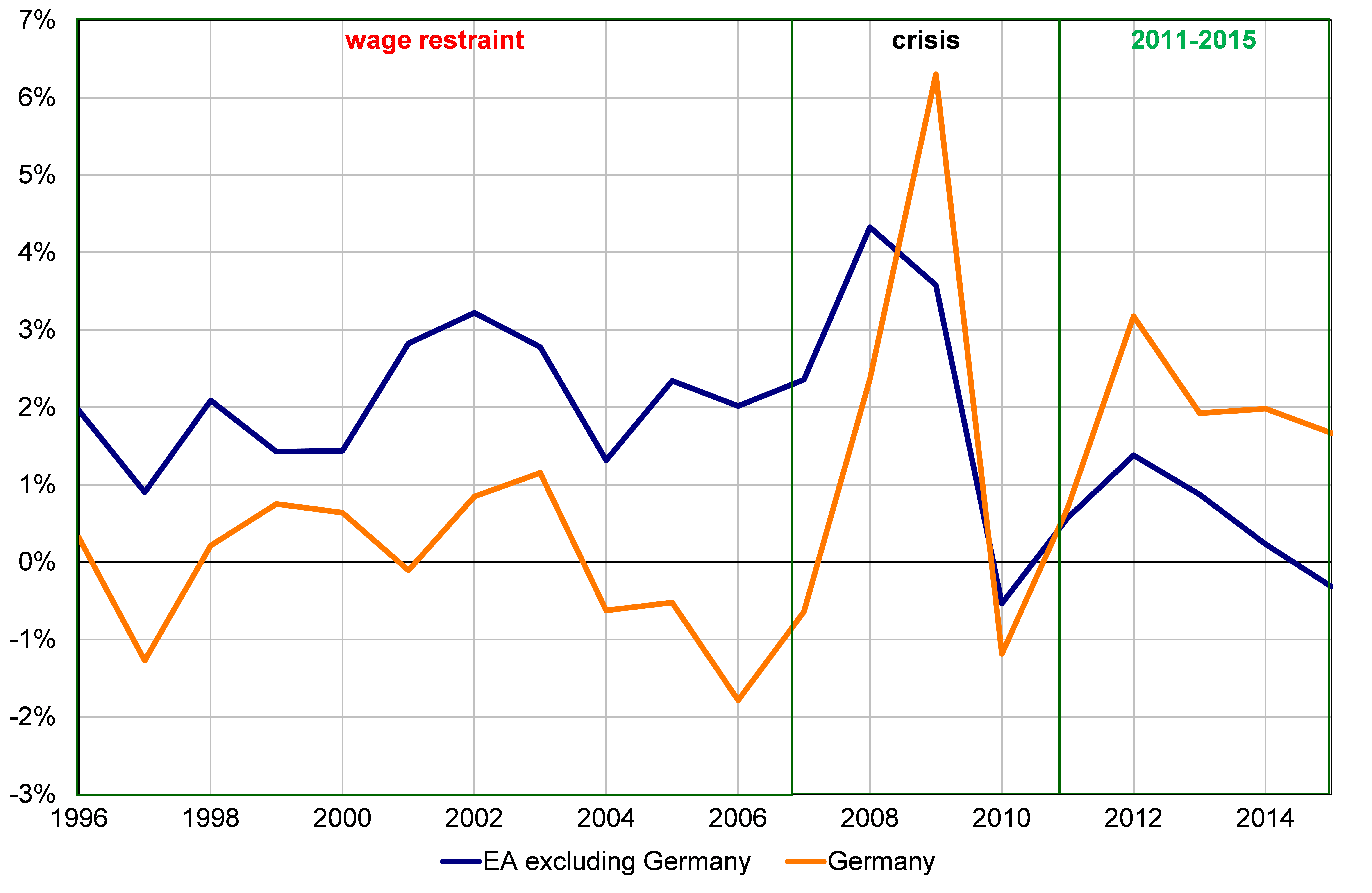Trésor-Economics No. 202 - Rationale for the new wage momentum in Germany
Since the end of the financial crisis, salaries in Germany have increased significantly and real wages are rising faster than productivity.
The buoyancy of the German labour market explains this shift in wage dynamics compared to previous trends. The unemployment rate is at a twenty-five year low and is forcing wages upwards.
Following fifteen years of wage restraint, the change also reflects distribution of value-added that is more favourable for workers, especially in sectors exposed to international competition.
The introduction of a minimum wage in Germany led to substantial wage hikes for the beneficiaries, although the aggregate impact on employment and wages appears mitigated in the short term.
This wage momentum is helping rebalance competitiveness between euro area countries as German unit labour costs have been rising more rapidly than the euro area average since 2011. This increase has been insufficient to offset the differences in these costs seen in the euro area between 1995 and 2007, however, and has not led to a noteworthy reduction of the German current-account surplus.
The strong German labour market and wage rises have helped bolster households’ purchasing power but, to date, have failed to halt the sharp increase in the poverty rate over the last fifteen years.
